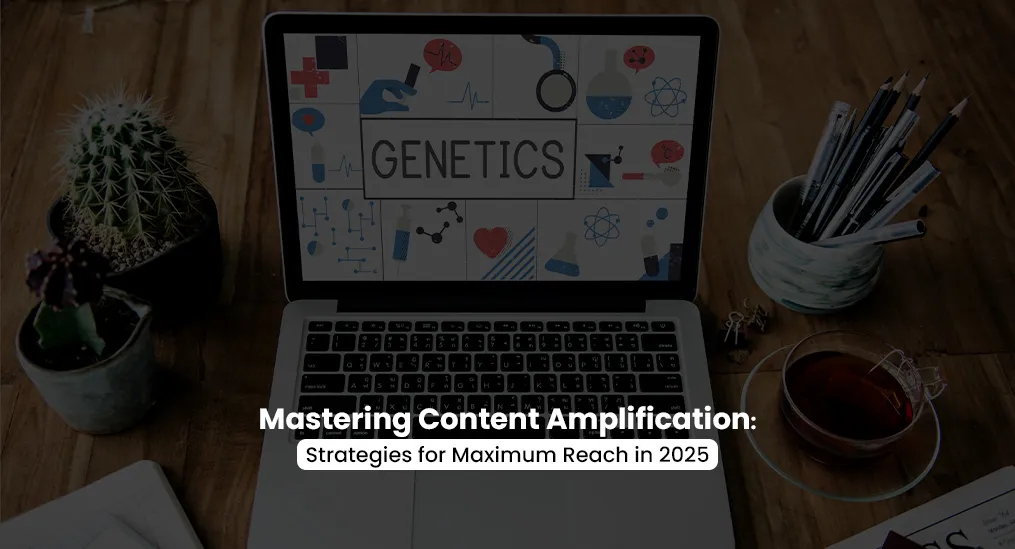Why Content Marketing Strategies Are Necessary for Businesses in 2024

Content marketing represents one of the best strategic processes of producing and distributing meaningful, super relevant, and consistent content to attract and retain the audience group and positively influence their purchasing decisions. In the digital age, this type of advertising has become much more important because it perfectly complies with how consumers currently like to interact with brands by obtaining answers and getting solutions directly through digital tools.
Businesses can build trust, strengthen search visibility, and have deeper customer relationships by providing valuable articles instead of customers’ direct sales pitches. This makes content marketing strategies cost-effective, simple, and effective.
In 2024, content marketing is still essential to every business owner who wants to use digital technologies to succeed in the market. The importance of content marketing from a consumer point of view is highlighted by consumers doing more research and shopping online, creating a necessity for a good content marketing strategy. For a business, this is a way to develop authority and trust with consumers and achieve speaking loudly through online search.
What is Content Marketing, and Why is it Important for Businesses?
Content marketing has significantly evolved from being limited to print materials to being considerably more complex in today’s digital strategies. The earlier types of content marketing were more straightforward and mainly involved paper-based materials such as manuals, magazines, and brochures, which were distributed to attract customers to the company’s products or services.
For instance, the legendary John Deere magazine, “The Furrow,” which was issued in 1895, supplied valuable agricultural information and methods helping to build up a large customer fan club.
You’ve probably heard the phrase “Content is King” often, but do you know why it’s so important? Content marketing is an excellent way to reach people and grab their attention online. According to the Content Marketing Institute (CMI), 73% of B2B and 70% of B2C marketers use content marketing as part of their overall marketing strategy.
This also extends to marketing, with 70% of marketers spending money on content marketing. In addition, the content marketing industry is projected to hit a market value of U.S. 107 billion dollars by 2026. It is now clear that content marketing is the most critical strategy.
Content marketing focuses on delivering valuable and engaging information to your audience.
- Establish trust with your audience.
- Increase visitor numbers to your website.
- Develop and maintain connections with your audience.
With tools allowing more profound insights into consumer behavior and preferences, AI and machine learning play a significant role in customizing content for one specific person and tailoring timing and placement to maximize engagement. Interactive content, including quizzes, polls, and AR apps, delivers a highly engaging experience, and people avail a personalized experience.
The Power of Social Media Marketing

Social media has a significant place in content marketing strategies and is one of the key columns in inbound marketing. This framework is built on content creation, social media communication, SEO, and branding to attract customers.
Here’s how social media integrates into inbound marketing:
1. Attracting Visitors: Facebook and Instagram have become the strategic channels for attracting future clients in the stage of inbound marketing, which is known as attraction. The purpose of content marketing is to create exciting and valuable content that is tailored to an audience group’s needs and interests. Thus, Content shared on different platforms helps draw visitors to the platforms and the businesses’ websites.
2. Engaging and Converting Leads: As soon consumers are skewed towards a brand’s website or social media, that is the time to engage with personalized content and interactions. This medium is accomplished on social media platforms by allowing businesses to dialogue directly with customers, respond to their queries in real time, and provide content that will eventually take them to the bottom of the customer funnel.
3. Building Trust and Credibility: Brands that are considered the most authentic by their fans are represented in such a way on social media platforms, with consistent and assisting interactions. This trust is a foundation of inbound marketing as it raises a brand profile, representing the brand as a reliable and authoritative resource. Regularly Providing informative and well-categorized content helps a brand build up its voice. It also enables a brand to maintain conversations with its customers constantly.
4. Supporting SEO and Content Discovery: Social networks can sound the alarm for content dissemination and SEO policies; in that regard, they can bring visitors to the leading brand’s webpage utilizing shared posts. Though social media metrics do not precisely affect SEO rankings, the upsurge in sight view and traffic may lead to the appearance of high-ranking web pages, otherwise known as page rankings.
5. Integration with Other Marketing Channels: Social media, in inbound marketing, should not be a one-off tool; it has to be incorporated with other components such as email marketing, blogs, and digital adverts, which together will create a holistic marketing strategy. Integrating the branded message across all channels requires the customer to have a uniform experience regardless of where or how they connect with the brand.
Social media empowers the efficiency of inbound marketing by giving different ways of grabbing attention, keeping them occupied, and transforming them into clients and followers of the product. It is pivotal in every marketer’s strategic arsenal, offering wide avenues for personalizing experiences resulting in impressive generic marketing outcomes.
How to Develop an Effective Content Strategy?

Understanding the Target Audience
Creating Valuable and Relevant Content
Consistency and Planning
Optimization and SEO
Multichannel Distribution
Measurement and Analytics
Feedback and Adaptation
A dynamic content strategy also involves listening to audience feedback and adapting the content accordingly. This could involve modifying the tone, shifting the schedule, or changing the content theme to keep up with viewers’ shifting focus.
Considering these elements as a key part of the content marketing strategy ensures that the content can appeal to the right audience, connect with them, and convert, finally meeting the business goals.
Final Thoughts
Content marketing strategies are central to business endeavors that aim to be noticeable in the digital landscape. By creating constant, high-quality content with an underlying factor of connection to the target audience, organizations can drive brand recognition, credibility, conversion, and sales for their products. Content marketing is a way of communication that is not made to create a deal but to ensure that customers are happy and that long-term loyalty is built.
Companies must remodel and pump resources into content marketing in a world where digital marketing continually evolves. Consumers’ behaviors change as new technologies appear. Organizations that want to be the market leaders and outperform their competitors must be agile, constantly building and modifying their content strategies to meet their customers’ evolving needs and desires. Spending on content marketing should not be regarded merely as an operational expenditure; it is a deliberate strategic plan that will potentially bring impressive results at the end of the day.
Nowadays, it is impossible to overrate the significance of an effective content marketing strategy for any business aiming for long-term success and growth. This implies having a clear notion of the audience you are targeting, the willpower to create relevant and valuable content, remembering a robust distribution strategy, and analyzing content.
Thus, this approach can help companies achieve greater depth in their market coverage, build stronger customer relationships, and become more sustainable. This implementation could motivate readers to apply the practices, enabling them to accomplish the actual market transformation and gain considerable marketing advantages.

How to Move and Organize Products in Your WooCommerce Shop on WordPress
How to Move and Organize Products in Your WooCommerce Shop on WordPress A messy, cluttered

2024 Advertising Trends You Can’t Afford to Ignore
2025 Advertising Trends You Can’t Afford to Ignore What’s next for advertising in 2025? It’s

Mastering Content Amplification: Strategies for Maximum Reach in 2024
Mastering Content Amplification: Strategies for Maximum Reach in 2025 Does it feel like your content




